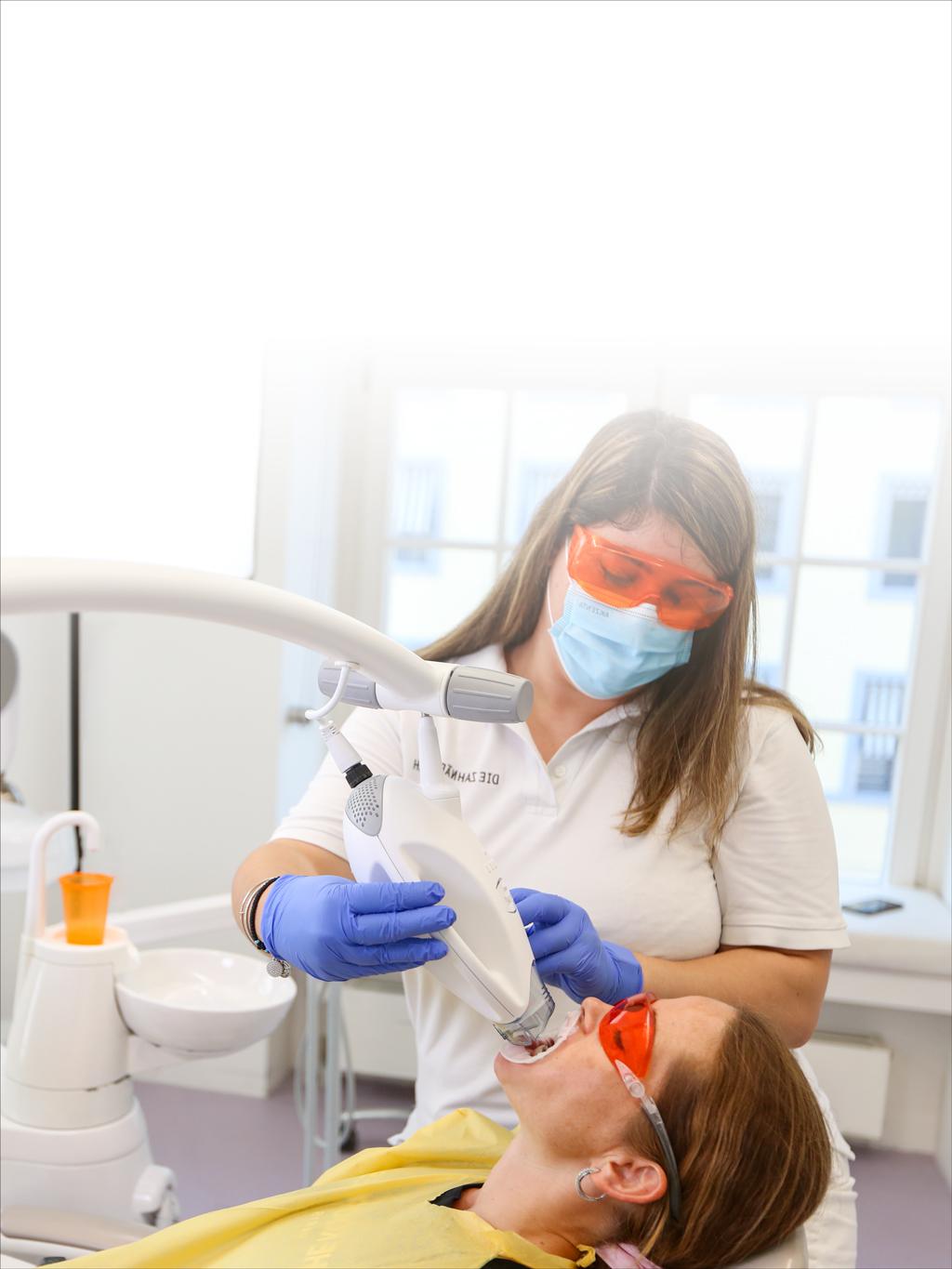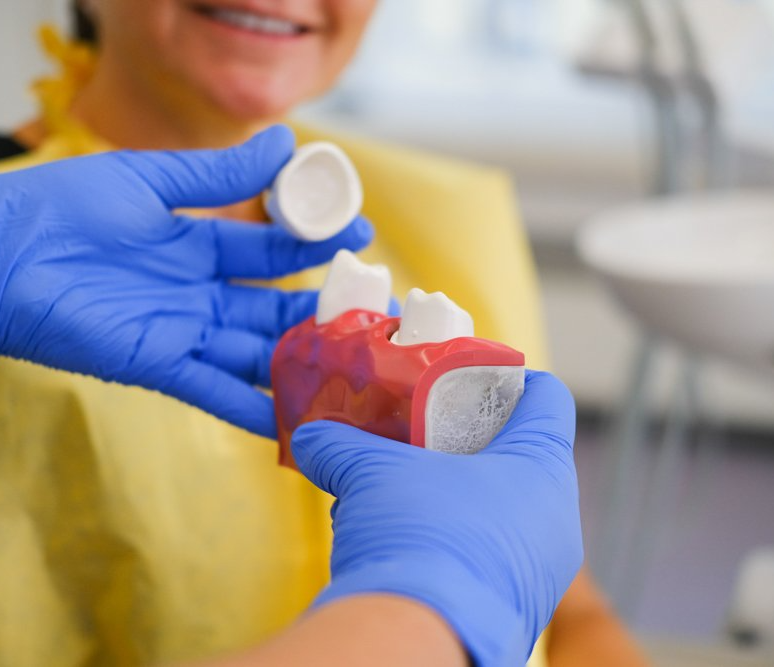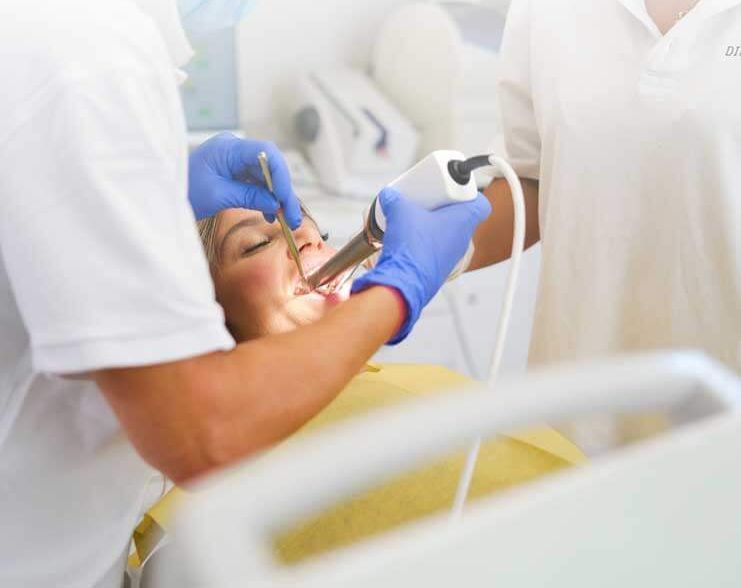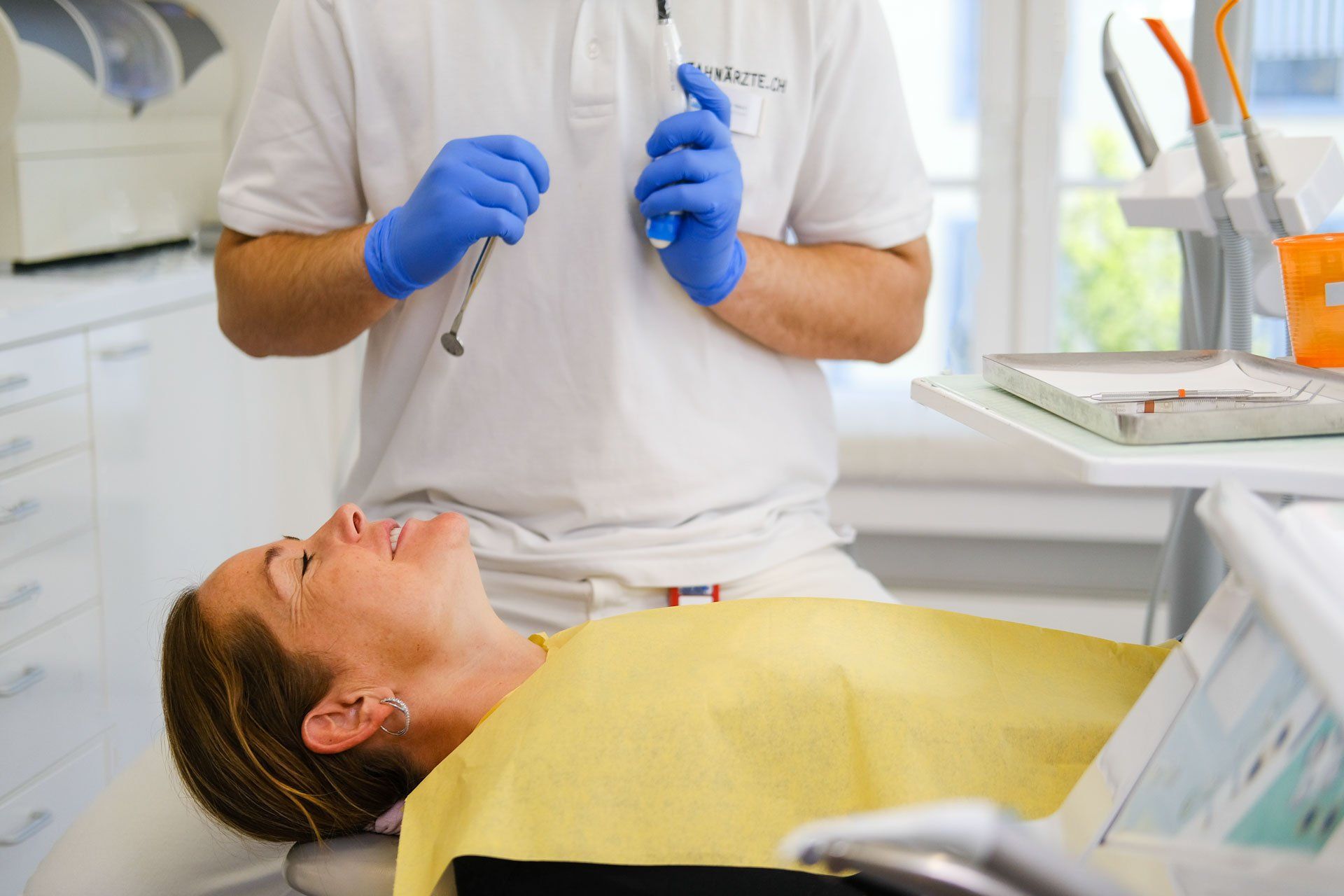Overcome dental anxiety: Tips for a more relaxed visit to the dentist
Dental anxiety can be pronounced, very paralysing and have an immense impact on oral health. We show patients what tips they can use to overcome this obstacle.
Causes of dental anxiety
The fear of pain in the mouth area is quite common among the population. This can also just be a fear of injections. However, there is a big difference between this and a real phobia of a dental practice or a dentist.
There are studies that indicate that the majority of phobias can be traced back to a traumatic experience in childhood. This may have occurred in several areas. In children, pain from a visit to the dentist a long time ago may be responsible. The memory of this may no longer be tangible.
Other causes of dental anxiety can be found in the patient's immediate environment. If the parents themselves associated a visit to the dentist with pain and negative images in the past, this may have become anchored in the subconscious.
Symptoms of fear of dental treatment
Dental anxiety can be recognised by both physical characteristics and typical behaviour. Those affected postpone dental appointments as far into the future as possible and often cancel a visit to the dentist at short notice.
The problem with this is that it creates a vicious circle. Breaking this cycle is difficult for many patients. The lack of treatment means that the general health of the teeth gets progressively worse, which also exacerbates the phobia.
The increasing decay of the teeth can also lead to shame, feelings of guilt and social isolation. In dentistry, the following physical symptoms of dental anxiety are recognised:
Circulatory problems
Dizziness
Trembling
Inner restlessness
Stress
Discomfort
Vomiting
Nausea
Palpitations
Sweating
Panic
If several of these symptoms apply to you when you think of dentists, you may be affected by dental anxiety.
Tips against dental anxiety
We are happy to take your treatment into consideration and try to make it as pleasant as possible for you. Give it a try and make an appointment with us!
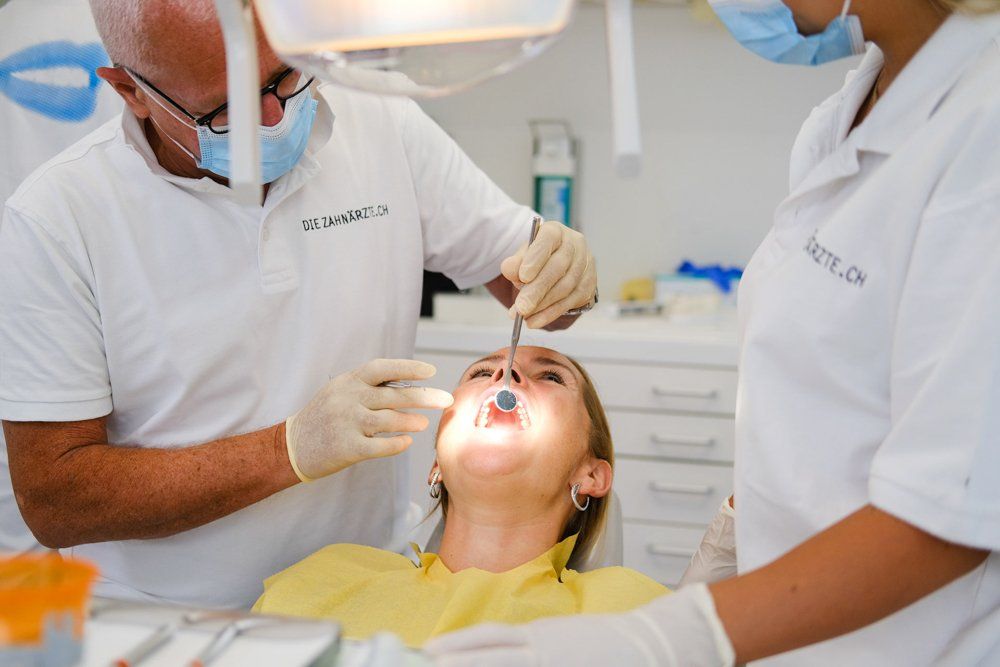
1. talk about it
It can be very helpful to talk to someone about it. Just the fact that you are sharing your suffering with another person will make the situation a little better. Talk it over with a friend or family member and explain exactly what it is about the situation at the dentist that makes you so anxious.
There are many people in Switzerland who are afraid of dental treatment,
So you are not alone. It also helps many of those affected to talk to like-minded people. The best place to do this is in forums designed for this purpose. Other patients share their own experiences and fears there. Perhaps they will find the decisive piece of advice against their anxiety there.
2. do not postpone appointments
Time can also be a decisive factor in how dental anxiety develops. The longer you wait to make an appointment with a dentist, the more your anxiety will develop.
If you attend regular dental appointments, your teeth will also be in good condition and you will not have to be afraid of treatment. In most cases, it will only be a check-up.
It is advisable to have your teeth professionally cleaned twice a year. This is painless and the best preventative measure to avoid having to worry about potentially painful treatment in the first place.
3. find understanding practice
Most dental practices in Switzerland have developed a great understanding for anxiety patients. It is important that you can trust the dentist completely and that you find him or her likeable. It is possible to have a conversation before the actual treatment to take the first step.
Even on the day of treatment, you will always remain in full control. Nobody forces you to stay in the dentist's chair. It is precisely this threat of losing control that scares many patients, but it doesn't have to. You can leave the practice whenever you wish.
4. keep calm
Although it is easier said than done, it is important to keep calm. If she doesn't get enough sleep the day before the treatment, it increases her nervousness. So go to bed in good time and try to get enough sleep.
Drink a calming tea before the treatment, this can also help to reduce the excitement. If you want to take a sedative, you should discuss this with your dentist in advance.
5. distraction through music
Another good way to overcome dental anxiety is to use music as a distraction. This way, they won't notice much of the active events during the treatment. An exciting audio book is also a good alternative to divert their attention to something else.
6. agree on hand signals
Agree individual hand signals with the dentist. You can use these to signal that you need a break or are in pain. As verbal communication is often difficult during dental treatment, this way you can guarantee that you can communicate at any time as soon as you feel unwell.
7. psychotherapy, autogenic training & hypnosis
Psychotherapy, autogenic training or hypnosis are also approaches to reduce the fear of the dentist.
- Psychotherapy: Psychotherapy can be useful to get to the bottom of your dental anxiety. Therapists have a number of options available to them, such as behavioural therapy. Additional medication is optional and can be taken in consultation with the dentist.
- Autogenic training: This is a simple but effective type of relaxation technique. The method will help you to overcome dental anxiety. You mentally say certain phrases that calm your mind and body. This leads to relaxation of the body and the anxiety gradually subsides. Because you are busy reciting these phrases in your mind, you are no longer focussed on the actual treatment. You no longer notice noises, discomfort or unpleasant feelings during a visit to the dentist. Autogenic training is a tried and tested method that has been scientifically proven to be effective. It also helps many people to lose their fear of exams, for example.
- Hypnosis: Experts have discovered that hypnosis can also play a helpful role in treating dental anxiety. However, people with dental anxiety must be able to accept it. This method goes one step further than autogenic training and is often the last option before anaesthetic treatments.
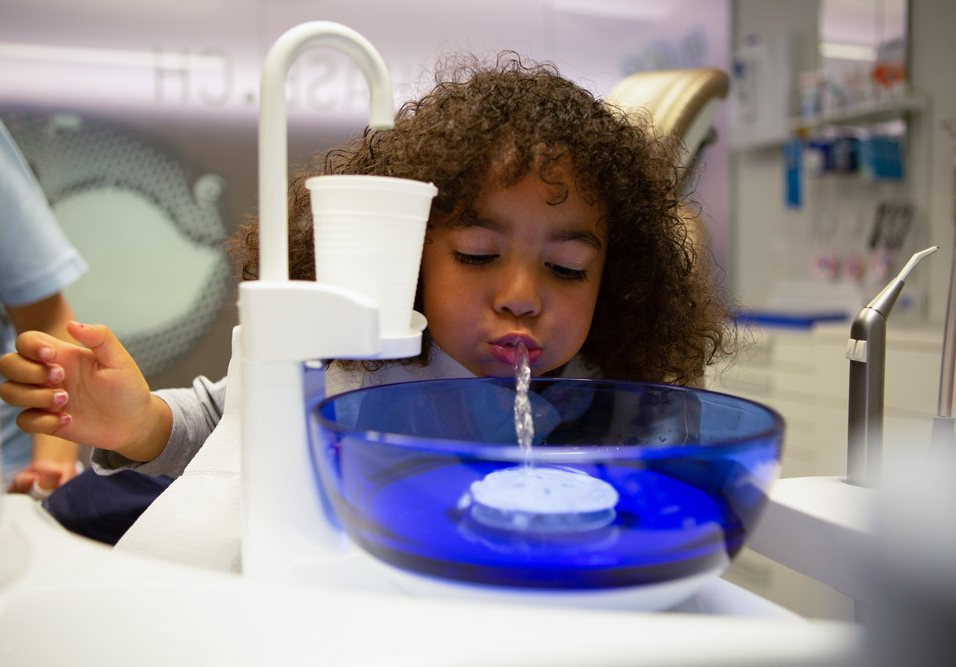
What to do if you have a toothache?
For the sake of completeness, general anaesthesia for dental phobia should also be mentioned. However, in most cases this is not the best choice when dealing with dental problems and is therefore not really a tip. General anaesthesia puts your body under a lot of stress and there is also the possibility of complications.
Furthermore, general anaesthesia does not get to the root of the problem. It is a much better solution if you face your fears. You cannot be treated with a general anaesthetic every time you visit the dentist, as the strain on your body would be too great.
Get in touch with us
Don't wait too long for your check-up. It's best to make an appointment right away. Our dentists have a lot of experience with anxious patients. Take the first step and we will show you that a visit to the dentist can be stress-free and worry-free. We will take away your phobia and give you back your smile.
Wir sind auch hier



